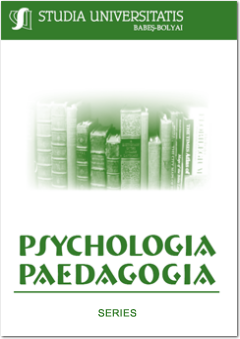AM I A GOOD CAREGIVER FOR YOUTH AT RISK? SOCIO-EDUCATIONAL WORKERS’ PERCEPTION OF SELF-EFFICACY THROUGH THE LENS OF ATTACHMENT THEORY
AM I A GOOD CAREGIVER FOR YOUTH AT RISK? SOCIO-EDUCATIONAL WORKERS’ PERCEPTION OF SELF-EFFICACY THROUGH THE LENS OF ATTACHMENT THEORY
Author(s): Levi Sudai PazitSubject(s): Social Sciences, Applied Sociology
Published by: Studia Universitatis Babes-Bolyai
Keywords: Secure base; Caregiver; Socio-educational worker (SEW); Adult attachment; Self-efficacy;
Summary/Abstract: “Have I succeeded in helping the youths I care for? Does our relationship enable the youths to make a progress? To feel better?” These questions are frequently raised during the supervision sessions with the socio-educational workers (SEWs) of the Youth Advancement Units . SEWs provide care for youths, many of whom have dropped out from formal educational frameworks in Israel. The main role of these workers is to enhance the youths, integrating them in society by establishing a personal relationship and promoting interventions. More than once, the SEW have to cope with complex tasks in their work. Moreover, they encounter professional and personal difficulties leading to a sense of frustration, failure, and rejection. A high perception of self-efficacy enables the SEWs to experience the difficulties as challenges, believing that they can promote these youths and attain success in their work, despite the difficulties. Conversely, SEWs with low perception of self-efficacy experience the difficulties as threats and believe less in the ability of the youths to change. This article examines the benefit and importance of another variable that facilitates the work with youths in situations of risk, as such, it may contribute to the perception of self-efficacy, the attachment style of socio-educational workers, when at the core of their work these workers must build a safe and beneficial relationship and be a significant adult for youths at-risk.
Journal: Studia Universitatis Babes-Bolyai - Psychologia-Paedagogia
- Issue Year: 63/2018
- Issue No: 2
- Page Range: 79-92
- Page Count: 14
- Language: English

